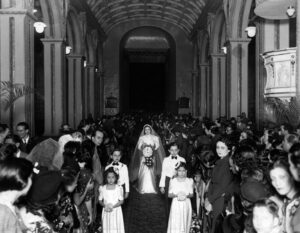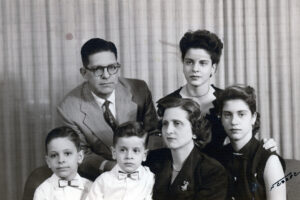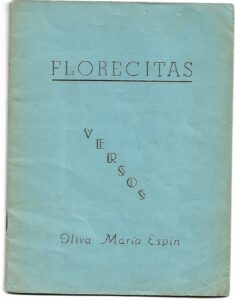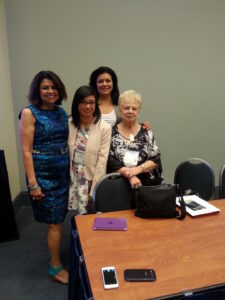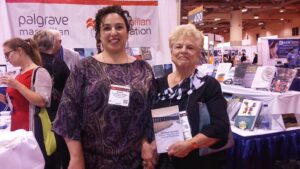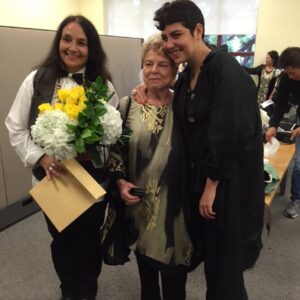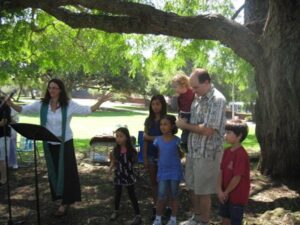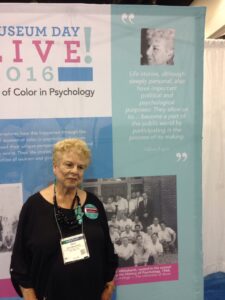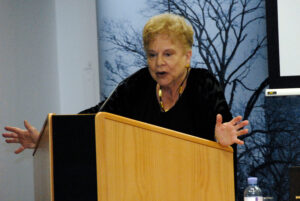Oliva Espin was born on December 12, 1938 in Santiago de Cuba. She grew up in Havana, where her father ran a school. Her mother was a strong woman, and Oliva frequently clashed with her, though she also saw that her mother set an example that being a strong woman was OK. Her father was very religious, and Oliva attended an all-girls school run by nuns, leading Oliva to value spirituality from a young age.
Throughout her childhood, Oliva excelled in school. Right out of high school, she started tutoring to support her family. When she turned 19, she joined a Cuba jeopardy quiz show and won $4,000, which she used to travel Europe for 3 months. When she returned to Cuba, she saw the Cuban Revolution take hold, and left Cuba after being instructed to carry forward Castro’s ideology at her job teaching junior high school. Oliva and her mother went to Spain initially, then joined her father and siblings in the US.
Through an organization providing support to college women, Oliva spent 2 years in Panama and 7 years in Costa Rica, graduating at age 30 from the University of Costa Rica with a BA in Psychology. Oliva went to Belgium to earn her doctorate, where she married a man. The marriage was brief and abusive, so she left and finished her doctorate at the University of Florida. Oliva then started doing clinical work and teaching, first in Montreal and then Boston.
After her marriage, Oliva noticed that she was seeking closer emotional connections with other women. She soon got into a romantic relationship with another woman, had a wonderful experience, and came to terms with her identity as a lesbian. Through her spirituality, she felt comfortable, rather than guilty, about her sexuality. She also served as director of a student’s dissertation on lesbians coming out later in life.
Because her colleagues knew she was a lesbian, Oliva was denied tenure for years in Boston, even though she won a prestigious American Psychological Association award for her writing and received consistently positive teaching evaluations. She transferred to the Women’s Studies department in San Diego State, drawing on her writing on women refugees, gender and migration, and more.
From her years of doing clinical work in Montreal and Boston, Oliva learned that comfort with sexuality was a big challenge for many women. During her sabbatical in the mid-1990s, she was inspired to interview women of different sexual orientations all over the US and write a monograph entitled Women Crossing Boundaries, a widely referenced text to this day.
In her OUTWORDS interview, Oliva delves into fascinating topics surrounding her personal and professional journeys, including seeing authoritarianism transform the Cuban economy firsthand, the difference between being an immigrant and a refugee, and the evolution of psychology from entirely clinical and statistical, to becoming a far more socially and contextually nuanced field.

